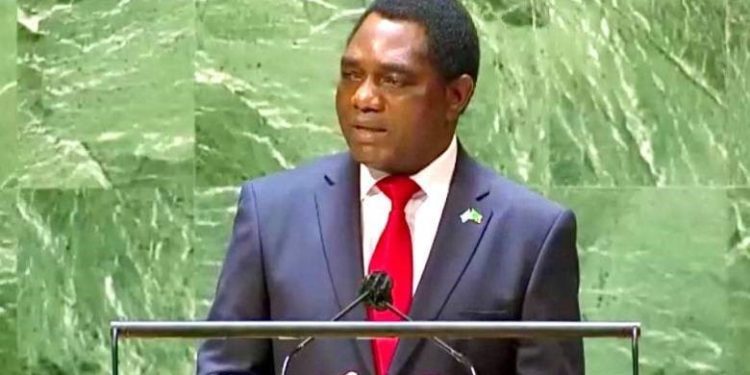Hakainde Hichilema says aid critical in containing drought that has adversely affected around 9.8 million people
LUSAKA, Zambia
Zambia’s president said Tuesday that his country urgently requires 23.5 billion kwacha ($937 million) to effectively implement immediate life-saving and sustaining humanitarian and recovery needs in view of the prevailing severe drought.
“Of this amount, 1.3 billion kwacha ($51.2 million) is available, leaving a financing gap of 22.2 billion kwacha ($889.4 million). With a heavy heart and on behalf of our government and the people of Zambia, we hereby appeal to the international community, our partners within the country, the private sector, the Church and civil society organizations to support our plan financially and materially in mitigating the devastating effects of the drought,” Hakainde Hichilema said in a televised address to the nation.
He said Zambia had experienced extremely low rainfall this year, culminating in the worst drought the country has experienced since records began.
“The effects of the drought have been clearly observed in crop production, where one million hectares of planted maize has been adversely affected in 84 of our country‘s 116 districts. Around 9.8 million people have been adversely affected by the drought, with 6.6 million in need of urgent humanitarian assistance,” he said.
Hichilema said it was his firm belief that various local and international partners shall join hands with the government and people of Zambia to alleviate the grave humanitarian situation and the other negative effects of the drought.
Apart from food insecurity, the drought has also affected power generation in Africa’s second largest copper producer, with Zambia’s state-owned electricity company Zesco implementing a daily load shedding schedule of up to eight hours due to a deficit of over 500 megawatts of hydropower generation.
Hichilema declared the drought a national disaster and emergency on Feb. 29.
He also said in Tuesday’s address that there will be robust interventions in health, nutrition, tourism and the protection of citizens as well as wildlife and the environment.






